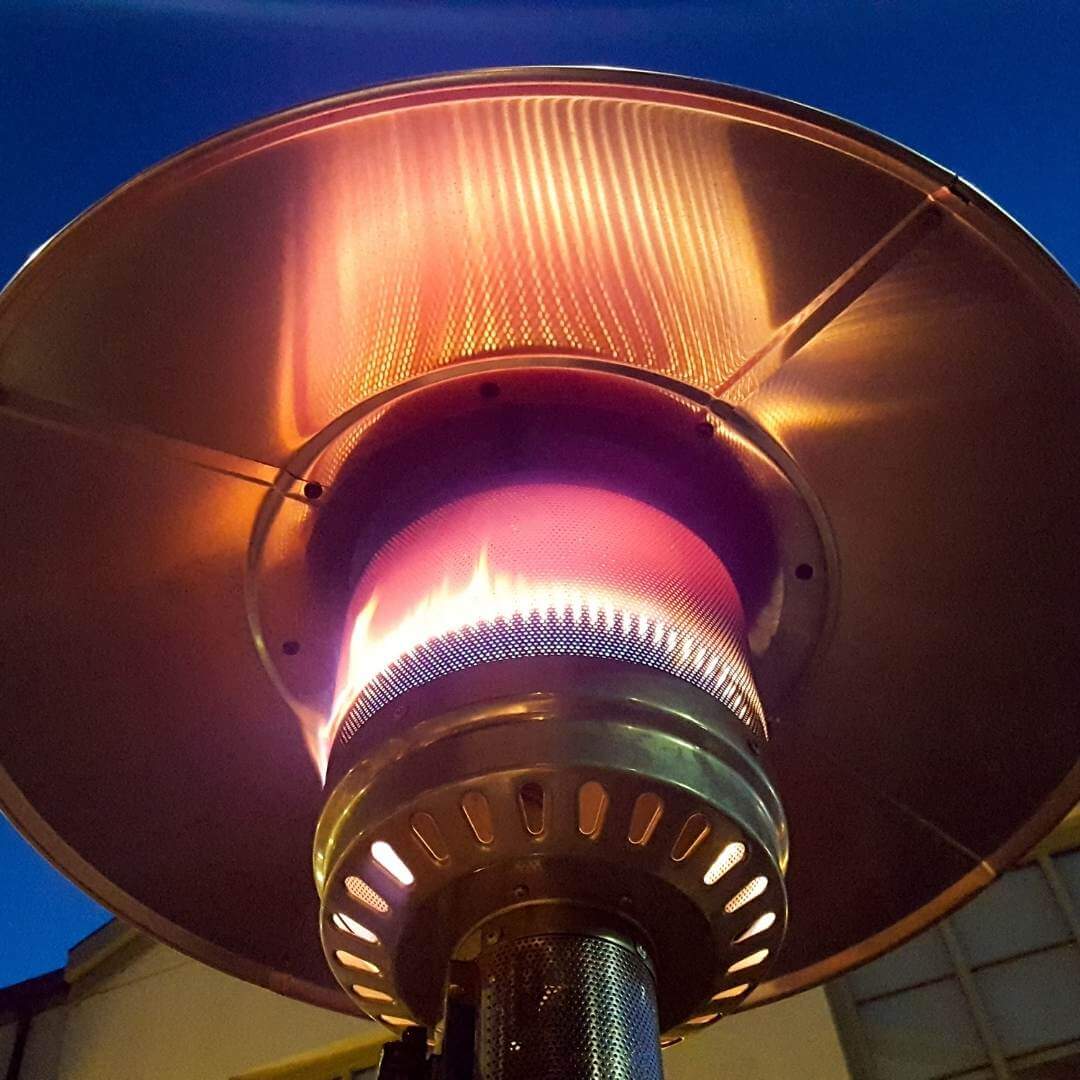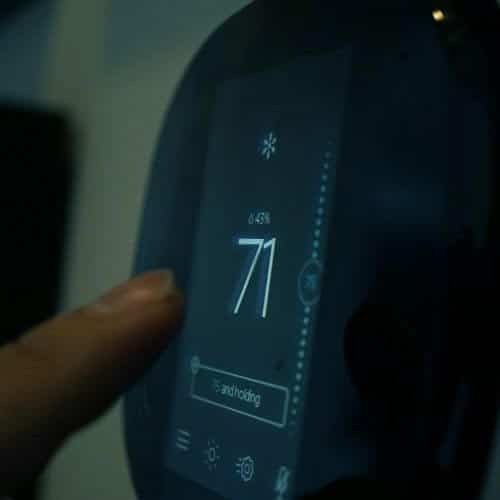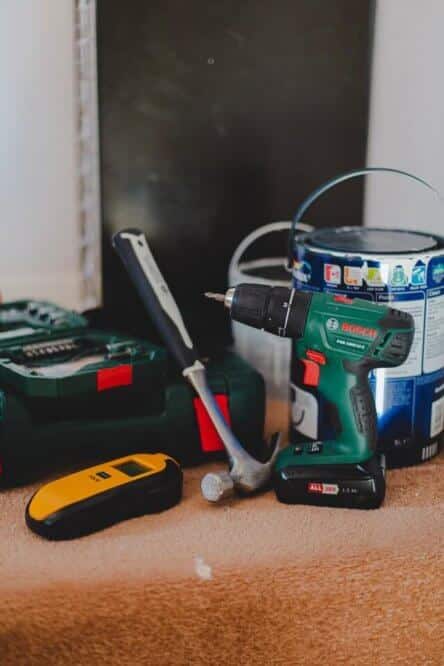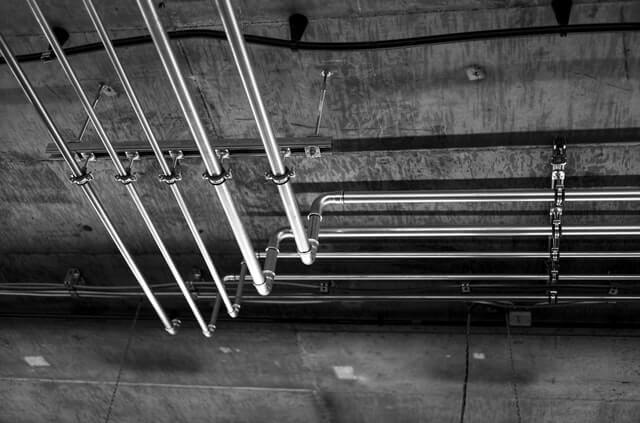No matter where you reside, propane heaters are an excellent solution to have. A reliable gas heater can serve as a backup, supplement a failing furnace, or make your camping stay a little more comfortable if the electricity goes out. The trick is to use the heater safely and effectively.When the weather becomes chilly, an indoor propane heater allows you to use spaces that you couldn’t use before. For example, in a workshop, you can work on projects, and in the garage, you can work on your car. Indoor propane heaters are more efficient and faster than electric house heaters while also lowering your energy bills.However, the question remains, are propane heaters safe indoors?
Indoor propane heaters can safely be implemented for household use as long they are used correctly. However, you should adhere to the safety precautions recommended by the manufacturer.
If your heater requires ventilation, ensure adequate airflow throughout your space. Remember that since propane is combustible, it should be used with caution when selecting and operating your gas heater.
Are Propane Heaters Safe Indoors?

Yes, propane heaters can be utilized indoors! There are two categories of propane gas heaters: indoor and outdoor. [1]
The indoor variety is made safe for use within the house and other enclosed spaces. Therefore, if you choose an indoor propane heater, you can expect to keep your home warm and comfortable.
Otherwise, you’ll have to keep your gas heater outside or in the garage with plenty of air, and you can install a carbon monoxide detector.
There’s a reason you should double-check the type of gas heater you buy. Outdoor and indoor propane gas heaters handle the smoke they produce quite differently. As a result, carbon monoxide poisoning can be caused by using an outdoor-only gas heater without adequate ventilation.
Choosing indoor propane heaters
When picking an indoor propane heater for your home, you have a few options. Wall-mounted propane heaters, radiant indoor propane heaters, and forced air indoor propane heaters are just a few of your possibilities.
But first, you need to decide which heater venting method you will go for. Vent-free heaters are designed to heat single rooms and have a high-efficiency rating. However, because they do not have a chimney, they may deplete oxygen in the room they are used in.
Therefore, a vent-free thermal unit with an oxygen depletion sensor is ideal (ODS). When an ODS senses low oxygen levels, the gas flow to the heater is promptly stopped.
Vented heaters, on the other hand, are the polar opposite. They exhaust into a vent pipe or chimney at the back of the device. This venting safely vents the exhaust gases outside.
Differences between Indoor and Outdoor Propane Heaters
The way propane heaters control smoke differs between outdoor and indoor models. When a substance burns, it produces various products, including smoke and carbon dioxide. Propane is no exception to this rule. If the heater is utilized indoors, one consequence of combustion, in particular, will pose problems: carbon monoxide.
Carbon monoxide and propane heaters
Carbon monoxide (CO) is harmful to human and animal health. Its danger stems from the fact that it is transparent, tasteless, and odorless. It takes time to build up as well. When you combine that with the mental fog caused by carbon monoxide, you have a recipe for tragedy.[2]
Carbon monoxide is always produced when propane is burned. If the propane heater is used outdoors, natural air currents will quickly sweep the fumes away. This is why using propane heaters outside is relatively safe. The gas created will be blown away by the wind before it accumulates to dangerous levels.
On the other hand, indoor propane heaters are a very different story. The CO they emit does not easily escape because they are designed to be utilized in enclosed environments. Indoor heaters are provided with automated shutoff valves to deal with this problem.
The switches are linked to oxygen sensors, so that the heater turns off as soon as there is insufficient oxygen in the room. This helps to keep CO from building up and causing problems.
Carbon monoxide detectors are included with some indoor propane heaters. If your propane heater does not have one, consider buying it for your safety. The heater should be at least several feet away from the detector. You can get a more accurate reading of the CO in the room by keeping the heater and CO detector separate.
Are propane heaters safe in garages?

Propane heaters are pretty safe to use in a garage. Even outdoor propane heaters can be utilized if the garage door is wide open. This will allow CO to escape while keeping the heat within.
When using a gas heater in a garage, it’s critical to keep an eye on the area around the heater. If flammable objects surround it, any heater can become a fire hazard. You should keep garden chemicals, additional propane tanks, gasoline, grass clippings, and combustible materials away from your propane heater. This will assist you in avoiding fire and the risks that come with it.
Dangers of propane heaters
Propane is a combustible gas. Fire and explosions can occur if you operate the heater incorrectly or irresponsibly. Avoid getting too close to the heater or touching the hot surface area, heating element, or flame to avoid fires or burns. Keep flammable objects away from a gas heater at all times.
CO poisoning symptoms can often be mistaken for the flu or a cold. Headaches, dizziness, weakness, nausea, tiredness, and disorientation are warning indications. Carbon monoxide inhibits the blood’s capacity to transport oxygen, resulting in loss of consciousness and death. Alcohol consumption and drug use can exacerbate CO poisoning by consuming alcohol or using drugs.
Propane can produce dangerous CO if misused in a closed area like a tent, truck cap, RV, or camper. The danger of death is substantially greater in sleeping individuals because they cannot identify the sluggish progression of CO symptoms.
Wearing appropriate clothes, sleeping in a thermally rated sleeping bag, or ingesting additional calories and fluids to stay warm at night are safer alternatives than utilizing a gas heater in a closed room.
Propane heater safety tips
- Read the manufacturer’s instructions carefully.
While many individuals disregard the manufacturer’s instructions when purchasing a new device, this is not the case with a gas heater. Therefore, after buying the heater, the first thing you should do is read the manufacturer’s instructions carefully.
The instructions will include all you should know about your gas heater, including how to use it and other safety precautions. Please do not disregard the instruction manual. It is crucial. If you cannot read, have someone who can read perform the reading for you.
- Proper Heater Positioning
The positioning of your propane heaters should be the first step in ensuring your safety. To begin, make sure your heaters are placed away from combustible things. Place your heater on cement, the ground outside the structure, or any other fire-resistant material. Make a 4-foot-by-4-foot square space where the heater will not come into touch with flammable items like plywood or insulation.
- Examine the condition and operation of the machine.
You’ll need to make sure your heaters are in good working order now that they’ve been properly installed. If your heater won’t remain lit, doesn’t produce a spark, or emits a gas odor, you should turn it off until it is fixed.
You can use some portable heater troubleshooting methods to help resolve the problem if your heater is acting up. [3]
However, if the problems persist, contact your heater provider to have them come out and inspect your system.
- Propane tanks should be kept upright and dry.
Make sure your propane tanks are upright when deciding where to put them, regardless of their size. This is critical because placing propane tanks upright keeps the relief valve in touch with vapor, reducing the risk of explosion.
Choose a firm, flat, and dry location at least six feet away from the heater. The tank should not be placed in standing water. This could cause the tank to rust, something you don’t want.
- Adequate Ventilation
You’ll also want to ensure that your heated room has adequate ventilation to keep your family safe. Because these heaters burn fuel, they produce foul odors.
Your equipment rental company’s properly educated repair technicians can show you how to ventilate your heated environment, but it’s also good to open windows around your house to aid ventilation.
It’s a win-win situation because proper home ventilation will also prevent moisture from accumulating in your building. The humidity in your house can cause mold to grow over time and prolong the cure time of paint and other materials.
- Keep Hoses Safe
For propane heaters, fuel pipes can be a significant source of danger. Hoses that are cracked, leaking, or obstructed might cause accidents. Do not run hoses through non-secured entrances to avoid fuel flow difficulties.
You risk squeezing your hoses, which could result in damage or punctures. Instead, put a block on the windowsill if your hose runs through one. This will keep the window from closing and pinching the hose. Also, keep your hoses away from severe temperatures.
- Do Not Dry or Warm Clothing with Propane Heaters
It should go without saying, but your heaters should only be used to heat your space. Don’t try to dry or warm items with your heaters. For example, while it may seem harmless to put your jacket on the heater, it is a significant fire hazard. Likewise, never intentionally place combustible things near or on your propane heaters.
Propane heaters are essential for keeping a building warm in the winter, but they can be dangerous if misused. However, you can do a lot to reduce your hazards, from keeping heaters in good operating order to proper placement, ventilation, and lowering fire risk.
- Always switch off the propane heater when it is not in use
Regardless of where you want to put the propane heater, you must always switch it off when you leave unless you know you will be back in no time. When no one is present, do not leave propane heaters running indoors. Please keep this in mind.
If you wish to sleep in a room with an indoor gas heater, you must never do so while it is on. This is a life-or-death situation. Turn off the heater when you’re ready to sleep. However, turn off the heater once you’ve realized you’re tired. To avoid death, do not sleep while it is on.
- Consider installing carbon monoxide detectors first.
If you have to use a propane heater in your home, you must install a carbon monoxide detector. It isn’t a conscious decision. But, it is a must-do activity. Carbon monoxide detectors must be placed as soon as the propane heater is installed.
If there is too much carbon monoxide in the space due to the heater, the detectors will sound an alarm. The sensor will therefore ensure that you avoid carbon monoxide poisoning.
- Have the Propane Heater inspected regularly.
Please inspect your gas heaters regularly, especially if they are vented. The examination will assist in determining any current or future issues that may emerge on or from the heater. In addition, you can get it inspected by a technician who specializes in propane heaters.
Regular maintenance, proper ventilation, and adequate propane and carbon monoxide handling will keep you toasty in any situation.
Are propane heaters safe indoors? Final Thoughts
If appropriately managed, indoor propane heaters can be safely be deployed for various uses. However, it is better to be cautious when using propane heaters indoors. Propane heaters should be treated with the same caution as you would with cooking gas.
To be safe, follow the safety precautions outlined in this article. Trust me when I say that the last thing you want to see is your dream home reduced to ashes due to a poorly handled propane heater.

Michael Davis is a heating & plumbing expert who currently works as independent contractor in SC. He also writes for Plumbertip.
For almost 10 years he worked on various plumbing tasks across South Carolina.



